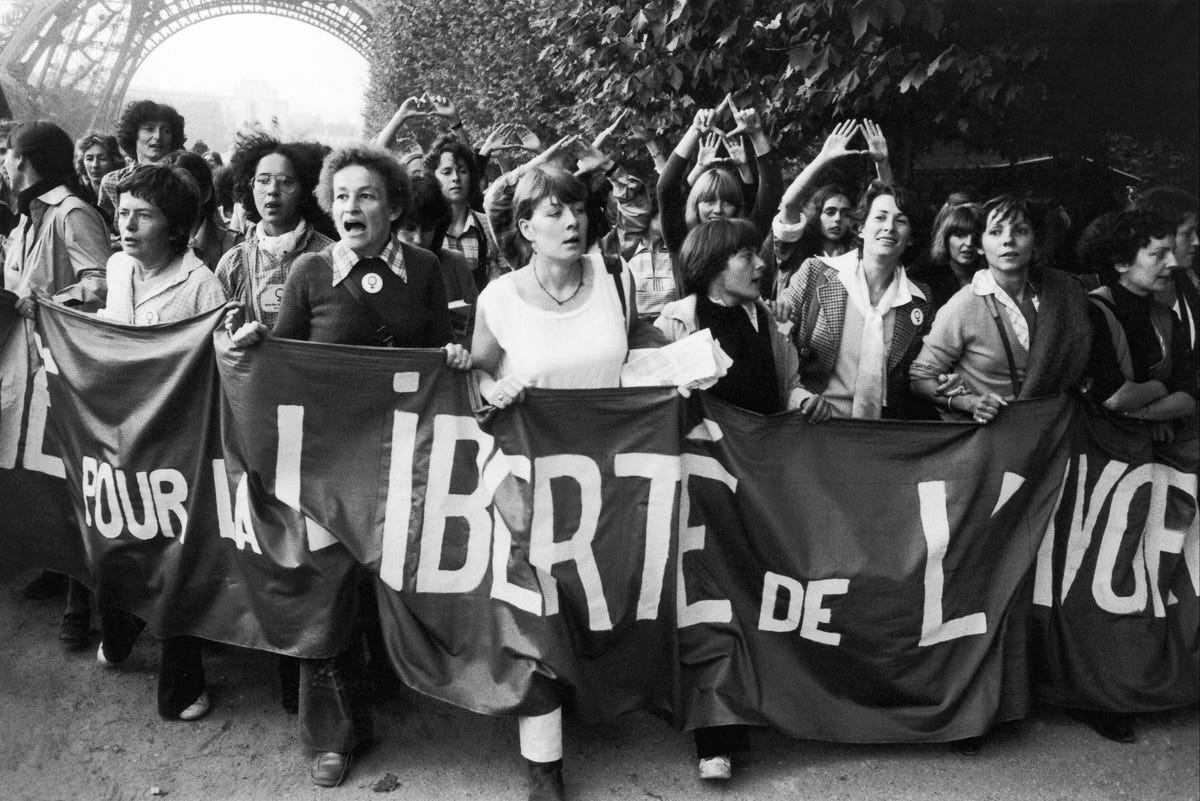
FRANCE – CIRCA 1979: Female Contraception In France In 1979 – Women march in Paris in favour of … [+]
Starting January 1, France will make access to birth control free for women up to 25 years of age. The goal of the policy, according to Véran, is to help young women with the cost of protecting against pregnancy.
“It is unbearable that young women cannot protect themselves or cannot have contraception if they choose to do so because it is too expensive for them,” said Olivier Véran, The Health Minister of France.
Until now, the age limit for free access to contraception in France has been 18. However, the French government stated that they noticed a reduction in the use of contraceptives among “some young women and it is mainly for financial reasons,” said Véran. The age of 25 was decided because “it is an age that corresponds, in terms of economic life, social life and income, with more autonomy,” Véran said.
Noémie Reynard, a young French humanitarian worker currently based in Niger feels hopeful, but as someone who works in the space of development projects for women’s rights, is very aware that more progress can be made. “My first reaction is to be really happy, to see that some efforts are being made in the sense of progress for women, for their bodies and their choices.”
“I also think that this measure until now, was only for women that were 18 years old, and it should be for every woman, especially who have difficulties, because precarity doesn’t stop at 25,” says Ms. Reynard.
MORE FOR YOU
The new measure will cost the government nearly $25 million (21 million euros) to cover the cost of all contraceptives and consulting visits for their use. The policy announcement also comes as President Emmanuel Macron’s government begins preparation for the 2022 election campaign. For some the timing of this policy feels political.
“It totally feels like a political move, Macron is closer to the conservative side of French politics, even if he never says it, and he wants to appear more to the left knowing that the election is coming soon. And in the last few months, some other progressive decisions were taken, like the prolongation of paternal leave and the Medically Assisted Reproduction bill (PAM)” says Ms. Reynard.
The government announcement was in stark opposition to how some countries are handling women’s reproductive rights. In the United States, the state of Texas imposed an almost total ban on abortion, making it the most restrictive state in the U.S. This past January, Poland’s government enacted a ban on almost all abortions which triggered protests against the decision.
“The decisions of Texas and the Polish government really made me feel sad, unempowered and angry because some people choose for women what they can and can’t do. France isn’t yet perfection, there is still so much to do, things that should have already existed for years, but we are going in the right direction. It follows the fight for feminism,” says Ms. Reynard.
Women in France have welcomed the new measure, with some saying they hoped for even more coverage to reduce gender inequalities, not just economic inequalities. “The fact that this is reserved for women – in part makes sense if you consider that most birth control are used and paid for by women, but it should also be enlarged to men, because the male condom is also a birth control system. This is also key to creating more equality between men and women,” says Ms. Reynard.
According to a 2019 government report, women that had to confront the lowest living standards in France were more apt to get an abortion compared to who had an average living standard.
“I am young and I was born with the right to have an abortion, the right of choosing my birth control, and a lot of freedoms that I know my mom didn’t have when she needed it. I think that what is happening in France is going in the direction of progress, and maybe women that are older than me, that saw the evolution up until today are proud that the fight continues,” says Ms. Reynard.




